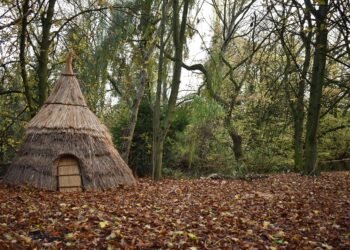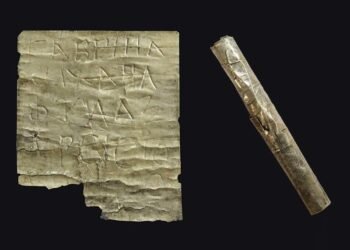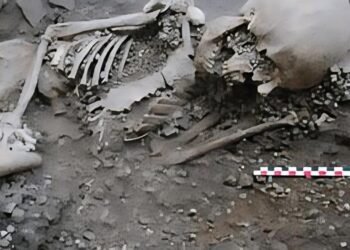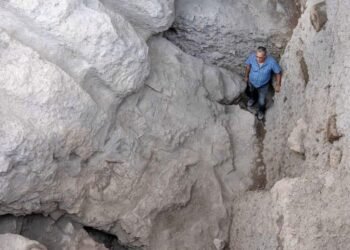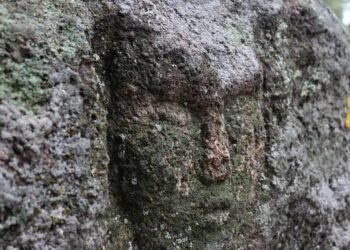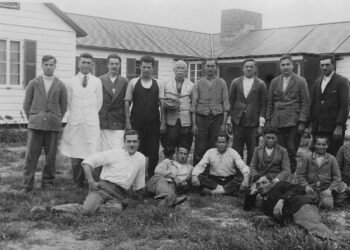Part of a rare Iron Age wooden axle from a chariot was discovered. during Sizewell C tree-planting excavations.
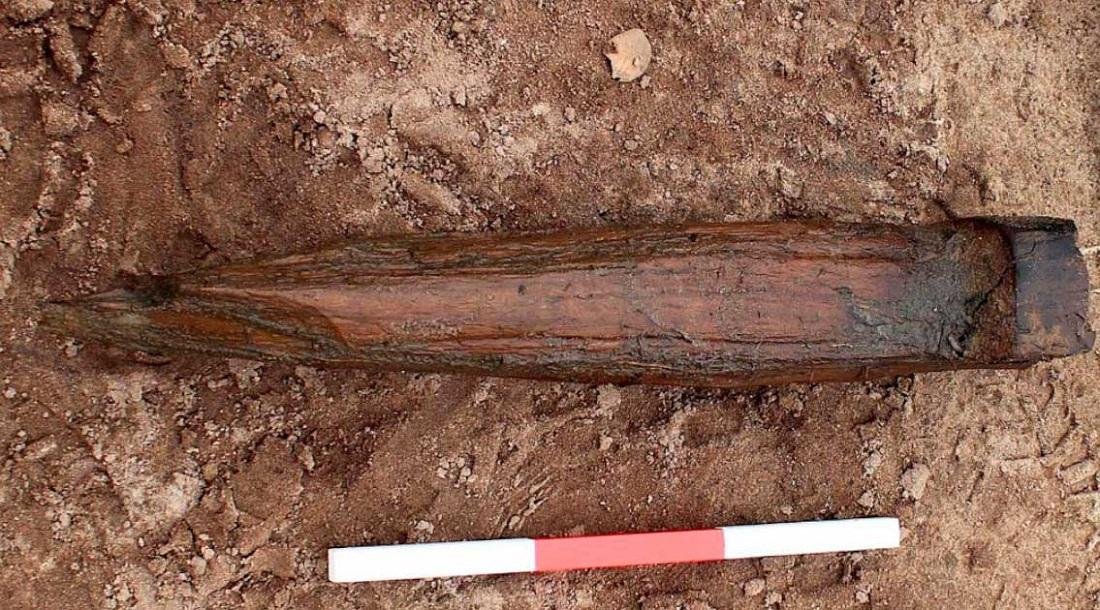
The fragment was found in a waterlogged pit in Eastbridge, near Leiston, in 2021. The discovery was made by Cotswold Archaeology, and joins a handful of others from British later prehistory.
A radiocarbon date on the axle’s hazel wood revealed that it was made between 400BC and 100BC.
According to Chris Fern, a Cotswold Archaeology post-excavation manager, the Iron Age pit containing the axle was most likely used as a watering hole for livestock. It joins a handful of finds “from British later prehistory, such as the axle found at Flag Fen, Peterborough.”

The discovery is extremely rare, as wood normally decomposes and is broken down by fungi and microorganisms such as bacteria.
“Both pits were waterlogged during excavation, providing ideal preservation conditions for wood, and it is in the base of one of these that the axle was found,” Fern explained.
The axle’s base had been broken, burnt, and reused, and it was discovered with charred boards that might have been from the same chariot. It had, however, been repurposed within a stake shoring that had prevented the collapse of the waterhole in the sandy soil at the site.
“Most of the spindle – for the wheel hub – survives, as well as part of the rectangular axle-bed which would have been secured to the underside of the cart or chariot,” Fern added.
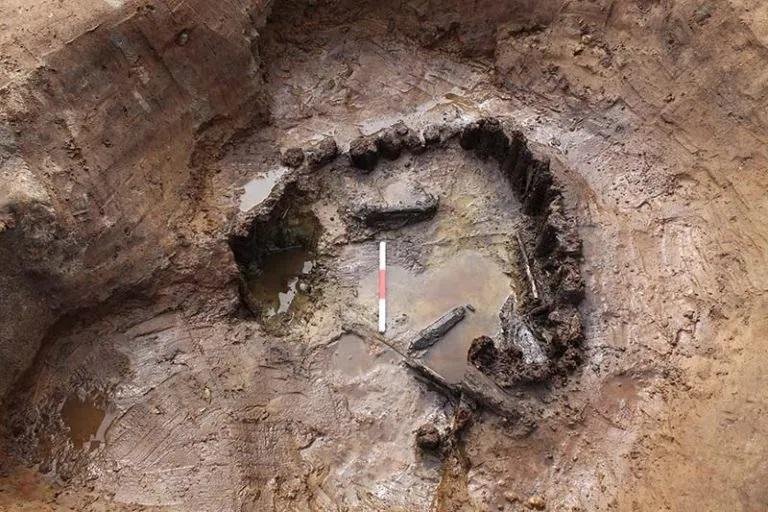
More research is being done to determine what this fascinating piece means for our understanding of ancient vehicles and transportation.






